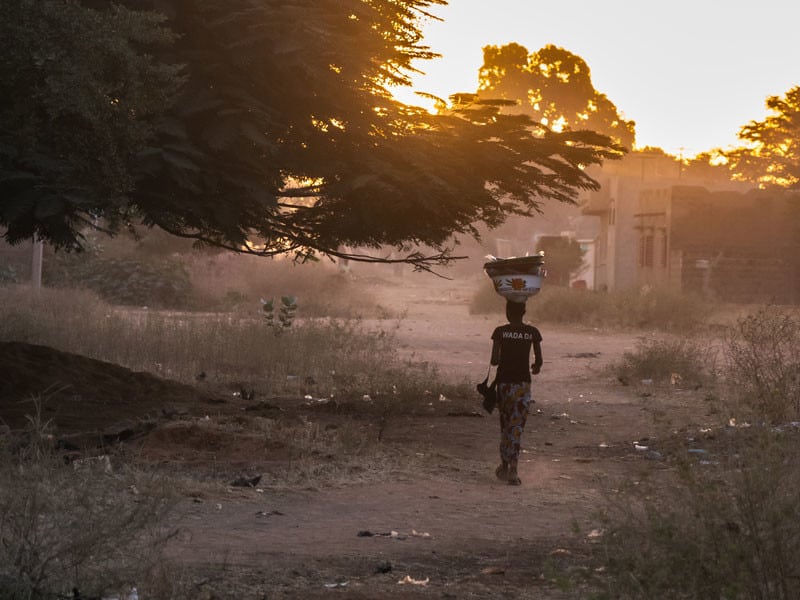Comprehensiveanálisis could lead to a more resilient and responsive governance system
The Republic of Malies fraught with tension between its governance system and thoseél is meant to ultimately benefit, the people. Its governance is complicated bya history ofattempts to devolve responsibility and authority entre clashing ethnic groups eso seek to be recognized and respected.Armed conflict, which remains ongoing in many of its central and northern communes, tiene upended the rules of local governance.
Mali Peacebuilding, Estabilización, y reconciliación (PSR) proyecto seeks to understand thecomplexity ofMali’s governance system en 46 communes where it operates. Financiado por elA NOSOTROS. Agencia para el Desarrollo Internacional yimplementado por creativo, the project undertook a major studya assess levels of conflictoesotieneallowed itto paint a larger and more nuanced picture of the conflict dynamics in each commune.
Working in collaboration with theRed de África Occidental para la Consolidación de la Paz (WANEP), the project used Creativo'sFragilidad Resilience Assessment Methodology (Marco®), a tooleso provides citizens’ perspectives entélresponsiveness ofcommune governance system, and paired it withinformacióngathered a través de an adapted version ofde USAID Interagency doonflictAnalysis Frametrabajar (ICAF).
Al mismo tiempo, Creativo collaborated withelUniversity of Letters and Human Sciences of Bamako (ULSHB) conducirthmiMarco® analysis. The findings were captured in ainforme, Path to Resilience.

Systematic challenges: Trust and legitimacy
télintegralanálisis shed light on actions that could lead to building a moreresilient andresponsive governance system. The findings challenge leadersaaddress thesystematic problems of governance in Mali —problems that hold in place traditional roles andrelationships among different ethnic or economic actors ydo not recognize or respect the needs of others.
For Mali, the efficacy of the system is largely challenged by two factors: metroutual trust that actors in the system will respect decisions made (trust and confidence); and the social contract (system legitimacy).
Desafortunadamente, tél weakness of thesefactorsundermines nearly every dimension of the governance system, from leadership to economicfoundations.Even whereadimensionera perceived as functioning, such as citizen participation, the overall trust, confidence and legitimacy of the systemwerequestioned. In a highly conflict–affected state like Mali, elre is concern eso estos factors will retard attempts to strengthen or establish social cohesion and performance of the system.
En general, yoeading communes along the path to resilience will require more than bringing thestate back to whatson perceived as ungoverned spaces. The lack of trustentre ciudadanos, which may be exacerbated by the absences of thestate, is also a reflection of frayed relations, frustration and power dynamics that existyeso cannot be addressed by thestate solo. Placing all the responsibility and expectation that the state is the only actor to facilitate peace and foster stability is not a recipe for success.
Information to action
Upon completing the study, elConstrucción de paz, Estabilización, y reconciliación programa recognized that such an in-depth and criticalanálisis requires the involvement y comprensión deMalians and non-Malians alike, across several regions, social lines andpolítico affiliations.
Enearly 2020,el programa began disseminatingPath to Resilience entre administrative, political and security authorities, including the Ministry of Territorial Administration and Decentralization, and local community organizations, such as Community Engagement Committees (CCA), which are present in nearly all communes where the programopera.
PAGarticipants involved en eldisseminationhave recognized el ICAF/Marco® cross-analysis‘ ability to identify grievances andthe drivers ofconflict but also thecharacteristics of resiliencethat existen their communes.
Oumar Konaté, télPAGresident of theCommunity Engagement CommitteesdeAnsongo delGao region, remarked: “We are really satisfied with the results of the intersectoral analysisbecause the grievances identified by this analysis are the real problems that our commune suffers from. Everything that can or must lead us towards peace, we are willing and available to go in that direction. Thankyou, PSR, for the quality of this work. From now on, the Community Engagement Committee will draw inspiration from the results of theICAF andMarco® studies to strengthen peace and coexistence."
While perceptionsunveiled por elMarco®/ICAFestudiar will likely change con el tiempo in a constantly evolving context, testimonies like the one from Mr.Konaté, substantiatethat the resultsdePath to Resilience yoargely reflectelreality of those exposed toconflict and violent extremism en Malí.
More information on howMarco® was conducted and sus hallazgos can be found in thellenoPath to Resilience informe.
Afia wa Mwenze is a Program Associate in the Governance Practice Area at Creative. Deborah Kimble is the Director of the Practice Area.